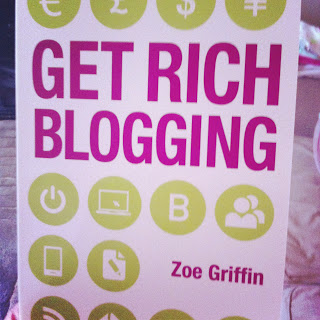I was an unpaid blogger and I’m proud of that. After following the recent back and forth between an established journalist and The Atlantic over the depressingly low pay of freelance writers, I thought I’d explore what it meant to me to work for, essentially, free.
Corporate health insurance and a moderate savings account are new additions to my life after spending five impoverished years as an underpaid freelance blogger, sleeping on the floor of my unfurnished Southern California apartments. While many critics deride the exploitation of new writers by financially beleaguered media outlets, I was thrilled to have the opportunity to trade a living wage in exchange for exposure.
Reuters financial blogger and lovable British dry-humor enthusiast Felix Salmon rekindled the ongoing debate when he tweeted about a testy exchange between a freelance writer and an Atlantic editor.
“I am a professional journalist who has made my living by writing for 25 years and am not in the habit of giving my services for free to for profit media outlets so they can make money by using my work and efforts by removing my ability to pay my bills and feed my children,” wrote Nate Thayer.
The Atlantic’s digital tech editor, Alexis Madrigal, has written an impassioned, sympathetic, and math-y 4,000-word response to yesterday’s kerfuffle, concluding “the economics of our business are terrible in some ways. And like everything else, the worst of it falls on the workers, the people making the widgets, doing the journalism, making the beds.”
Media Outlets didn’t always offer depressingly low rates. Prior to the Internet and Craigslist-apocalypse that sparked the financial decline of newspapers dependent on physical advertising revenue, freelance journalists could make an enviable living. Magazines and mainstream papers could offer $2/word, meaning a substantial 2,000 word feature would net +$4,000 (and often much more).
With an explosion of new media competitors (like TechCrunch) and plummeting online ad revenue, each individual story made far, far less profit. Media outlets still in need of content were forced to offer low or no-pay stories in exchange for reputation-building exposure.
Madrigal explains the weird odds that an expensive freelance writer could help him fill his traffic needs:
“But here’s the weird thing: while the top six or seven viral hits might make up 15-20 percent of a given month’s traffic, the falloff after that is steep. And once you’re out of the top 20 or 30 stories, a really, really successful story is only driving 0.5 percent or less of a place like The Atlantic’s monthly traffic. But that’s the best-case scenario. In most cases, even great reported stories will fizzle, not spark. They will bring in 1,000 or 3,000 or 5,000 or 10,000 visitors. You’d need thousands of these to make a big site go.”
As a result, it’s only sustainable to fund in-house writers or accept some freelancers for little-to-no money.
Contrary to the opinion of some of my media colleagues, I’m thrilled there was an opportunity to be a poor freelance blogger. If it weren’t for underpaid writers, I never would have had the opportunity to be a journalist.
I got started as an unpaid “expert blogger” for Fast Company’s new user-generated content program. After hustling my way into tech conferences and bagging choice interviews, Fast Company featured my posts on the front page, which gave me just enough leeway to pitch paid blogging gigs. But “paid” is a laughable exaggeration: we’re talking $50 for 8 hours of work and, often, interstate travel. I hit the jackpot when I received a whopping $500 for a front-page investigative business report that took weeks to write, on top of travel and all-day interviews.
But, here’s the secret I never told editors: I would have done it for free. Putting CNN, The Atlantic, and Fast Company on my resume gave me extraordinary access to the top rungs of the business and political world. I was addicted to meeting fascinating people and writing (hopefully) compelling stories. It eventually gave me the credentials to get my first paid gig back at Fast Company.
Even now that TechCrunch is a full-time-plus job, I still take time out of my scarce dating life to write. Last month, I published an op-ed for The Atlantic’s politics section supporting Congress’ move to defund the discipline of political science from the National Science Foundation. From the emails I’ve received in response, it’s sparked an important discussion within the political science community about the relevancy of modern-day academic research.
I’m yet to get around to invoicing The Atlantic. And, let’s keep this our little secret, I probably would have paid them for the opportunity get my thoughts in a publication I know political scientists read. (For conspiracy theorists: No, I’m not cozying up to The Atlantic. I’ve written criticisms of their stories in the past, which I’m sure doesn’t ingratiate me to their editorial staff.)
Now, I wish we lived in a world where content was a profitable business. But I don’t blame editors who offer to take pieces for no money. In fact, I’d be angry if the media business somehow developed an ethos of refusing to take freelancer pieces because they didn’t want to appear to be exploiting writers. In that moral-high-horse world, there’s a lot of wonderful information that would never be published.
I’m not sure if the career of professional freelancer will even exist in a decade. When I got started, I was a humble graduate student on the path to being a professional academic. There are a lot of great pieces written by those who never plan on being full-time writers.
I think few if any writers get into this job for the money; therefore, the money shouldn’t get in the way. Because, when times are tough (and they are very tough), the most important priority is the free flow of information.
